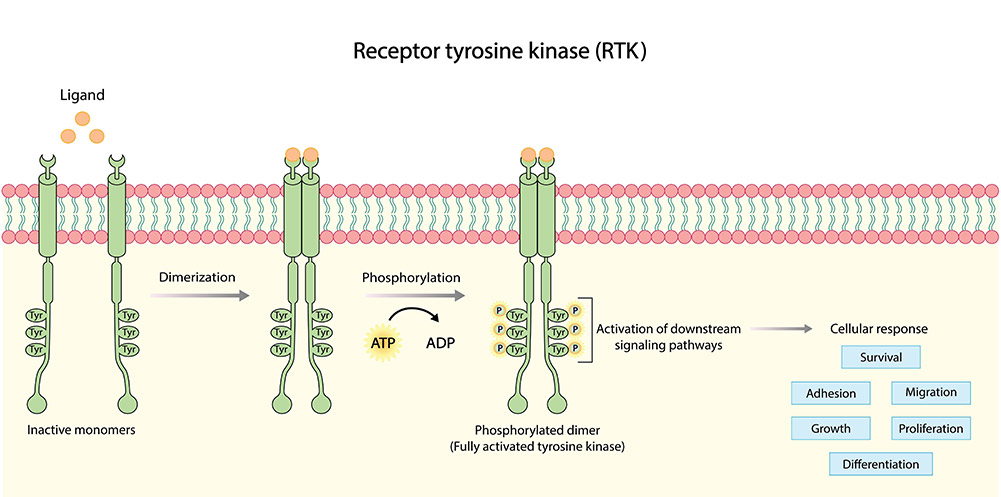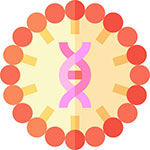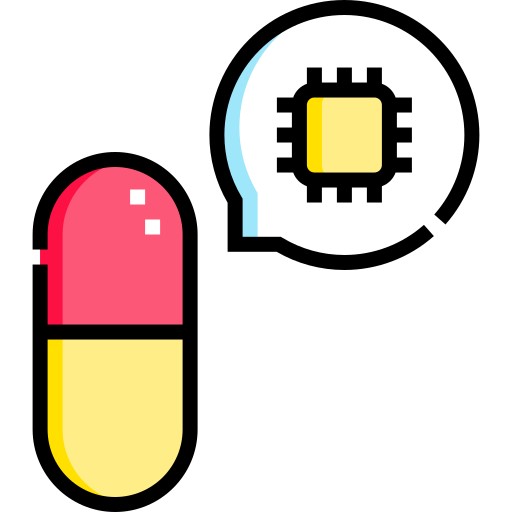Kinase Screening Services
INQUIRYAs a leading provider of drug screening technologies, BOC Sciences offers an advanced kinase screening and profiling platform, committed to delivering efficient and reliable kinase analysis services to global research institutions and biopharmaceutical companies. Leveraging multiple high-throughput detection technologies and a comprehensive human kinome panel, we assist clients from early-stage screening to lead optimization, enabling thorough assessment of kinase inhibition profiles, selectivity, and off-target risks, thus accelerating the drug development process.

Service Highlights and Advantages
- Extensive Kinase Coverage:The platform encompasses over 300 kinase targets, including families such as EGFR, AGC, CAMK, CMGC, AKT1, and common mutants.
- Flexible Panel Selection:Offers 50+ cell lines and a variety of mutant kinase systems (e.g., EGFR T790M/L858R) to meet customized screening needs.
- Diverse Compound Library:Features a library of 100,000+ small molecules, including kinase inhibitors, natural products, and other sub-libraries for rapid screening and optimization.
- Multiple Detection Platforms:Supports over 10 mainstream international assay technologies, including TR-FRET, fluorescence-based assays, Z'-LYTE, and binding assays.
- Efficient Data Turnaround:Standard projects are completed within 10–20 working days, with expedited schedules and data delivery available upon request.
- High Data Reliability:Uses specific inhibitors to establish assay models, maintaining IC₅₀ data deviation within 3–5 fold of literature values.
Targeted Kinase Screening and Profiling Services for Drug Discovery
BOC Sciences provides a cutting-edge, high-throughput kinase screening and profiling platform, covering all stages from early screening to lead structure optimization. We offer flexible, highly customized solutions to meet the research needs of clients in drug discovery, mechanism studies, and target validation. Our key services and features include:
High-throughput Kinase Inhibition Screening
- Rapid evaluation of compound inhibition against target kinases;
- Supports single or multiple target parallel screening, suitable for preliminary activity identification of large-scale candidate molecules;
- Multiple assay formats available (e.g., radiometric, fluorescence polarization, TR-FRET, AlphaScreen), selected based on experimental goals;
- Provides accurate IC₅₀ values or percentage inhibition data for hit identification and activity ranking.
Kinase Profiling Across Broad Panels
- Offers a standard kinase panel covering 300+ human protein kinases;
- Includes pathway-specific, disease-related, or functional subsets such as tyrosine kinases, cell cycle kinases, and MAPK/ERK pathway kinases;
- Provides quantitative selectivity analysis of candidate compounds, including off-target risk identification and heatmap visualization;
- Supports fixed concentration points (e.g., 1 μM, 10 μM) or gradient IC₅₀ analysis, suitable for lead optimization.
Customizable Panel Services
- Full panel with 300+ kinases covering all major kinase families;
- Focused panels targeting specific signaling pathways (e.g., MAPK, PI3K/AKT);
- Oncology-related panels including common tumor drivers such as EGFR, BRAF, ALK, SRC;
- Mutant kinase panels for clinically relevant variants (e.g., EGFR T790M, ALK fusion proteins);
- Customer-defined panels tailored to specific diseases, signaling pathways, or target families.
Cell-based Kinase Assays
- Evaluate compound inhibition effects on kinase pathways using cell models;
- Includes reporter gene assays, phosphorylation level analysis, and cytotoxicity tests;
- Reflects in vivo kinase regulation mechanisms and inhibitor bioavailability;
- Suitable for validating the physiological relevance of in vitro activity screening results.
Technical Platforms and Detection Methods
We flexibly select detection methods based on the characteristics of target kinases and experimental requirements to ensure data accuracy and reproducibility.
Radiometric Assays
- Direct measurement of substrate phosphorylation via radioactivity;
- High sensitivity, considered the classical standard for kinase screening;
- Ideal for high-precision inhibition assays.
Fluorescence-Based Assays
- Includes fluorescence polarization (FP), FRET, and TR-FRET;
- High-throughput, non-radioactive, and rapid for screening purposes;
- AlphaScreen platform suitable for protein-protein or enzyme-substrate interaction detection.
Mass Spectrometry-based Assays
- Detects true phosphorylation sites;
- Useful for mechanism studies and site-specific analysis;
- High accuracy, suitable for complex sample analysis.
Cell-based Assays
- Measures functional outputs of intracellular signaling pathways;
- Includes reporter gene detection, phosphorylated protein analysis, and high-content imaging;
- Provides physiologically relevant evaluation results.
Kinase Targets Supported by BOC Sciences
BOC Sciences offers an extensive and continuously updated kinase target repository, covering tyrosine kinases, serine/threonine kinases, receptor kinases, non-receptor kinases, and more. We support screening and profiling of over 300 kinase targets. Standard panels or customized target combinations can be provided according to client requirements, facilitating the discovery of highly selective and potent small-molecule inhibitors, and accelerating targeted drug development.
| Tyrosine Kinases (TK) | Angiogenesis/VEGF Pathway | Serine/Threonine Kinases (STK) | Cell Cycle Regulatory Kinases |
|---|---|---|---|
| EGFR | VEGFR1 (FLT1) | AKT1 | CDK1 |
| HER2 (ERBB2) | VEGFR2 (KDR) | AKT2 | CDK2 |
| HER3 (ERBB3) | VEGFR3 (FLT4) | AKT3 | CDK4 |
| HER4 (ERBB4) | PDGFRα | PKA (PRKACA) | CDK6 |
| ABL1 | PDGFRβ | PKCα (PRKCA) | CDK7 |
| SRC | FGFR1 | PKCβ | CDK9 |
| LCK | FGFR2 | PKCδ | CHK1 |
| FYN | FGFR3 | CAMK2A | CHK2 |
| YES1 | FGFR4 | MAPK1 (ERK2) | PLK1 |
| JAK1 | TIE2 (TEK) | MAPK3 (ERK1) | PLK4 |
| JAK2 | MET | GSK3α | Aurora A (AURKA) |
| JAK3 | FLT3 | GSK3β | Aurora B (AURKB) |
| TYK2 | RET | mTOR | Wee1 |
Need More Kinase Target Panels?
If you require a complete kinase target panel, or need target support classified by disease (e.g., cancer, autoimmune diseases, neurological disorders) or signaling pathways (e.g., PI3K/AKT, JAK/STAT, MAPK), please contact us.
Project Workflow

Requirement Communication and Technical Evaluation
After receiving the initial request from the client, our scientific consultants will conduct one-on-one communication to clarify research goals, target scope, compound information, and technical expectations. Based on the project background, we evaluate experimental feasibility and provide preliminary technical advice and screening strategies.

Panel Design and Program Customization
Based on the client’s needs, we select appropriate kinase panels (standard or customized combinations) and formulate experimental plans, including assay platform selection, concentration settings, repetition frequency, and data output formats, ensuring the plan is scientifically sound and cost-effective.

Sample Receipt and Quality Confirmation
Once the compound samples are delivered to our laboratory, we will conduct preliminary tests on purity, solubility, and concentration to ensure they meet screening criteria. If special storage or handling requirements exist, technical coordination will also be arranged.

Experiment Execution and Real-Time Communication
The screening experiments are conducted on a high-throughput platform following standard operating procedures. During the process, we maintain communication with the client, updating key milestones such as sample status, experimental timelines, and preliminary data to ensure project transparency and control.

Data Analysis and Result Delivery
Upon completion, data cleaning and analysis will be conducted, including inhibition rate calculation, IC₅₀ curve fitting, target heatmaps, and selectivity assessment. A complete report will be delivered in standard formats (Excel, PDF, graphical files).

Project Delivery and Technical Support
After project completion, we will organize a summary meeting to interpret the screening results, answer data-related questions, and, if needed, provide further recommendations for target validation, structure-activity relationship (SAR) analysis, or additional screening strategies.
Applications of Kinase Screening and Profiling
Targeted Drug Discovery
Kinase proteins are critical drug targets involved in signaling regulation of cancers, autoimmune, metabolic, and neurological diseases. Our screening service helps identify the target spectrum and selectivity of small molecule inhibitors, supporting lead compound optimization and validation, and advancing the development of targeted therapies.
Structure-Activity Relationship (SAR) Research
Through systematic kinase profiling, activity differences of compound series across various kinases can be compared to understand how structural modifications impact bioactivity. This enables the establishment of reliable SAR models and provides key guidance for chemical modification and structural optimization.
Drug Resistance Mechanism Studies
Target mutations are a major cause of reduced efficacy or failure of kinase inhibitors. We support mutant kinase screening to identify resistance-related mutation sites and assess compound inhibition on mutants, helping address clinical resistance challenges.
Multi-Target Drug Development
In complex diseases (e.g., cancer, multisystem inflammatory diseases), single-target intervention may not achieve ideal therapeutic outcomes. We offer full-spectrum kinase profiling to help identify molecules with multi-target features, supporting multi-pathway synergy strategies.
FAQs
What kinase targets do you support for screening?
BOC Sciences offers a standard panel covering 300+ human kinases, including tyrosine kinases (EGFR, HER2/3/4, ABL1, SRC, etc.), serine/threonine kinases (AKT1/2/3, MAPK family, CDK family, etc.), receptor kinases (VEGFR, PDGFR, FGFR, MET, etc.), and common drug-resistant mutants (EGFR T790M, BCR‑ABL T315I, etc.). You can also customize target panels based on disease area or signaling pathway (PI3K/AKT/mTOR, JAK/STAT, MAPK, etc.) to meet specific research needs.
What is the typical project timeline and delivery period?
Generally, the standard project timeline from sample receipt, panel confirmation to final data report delivery is 4–6 weeks. For single-concentration primary screening only, the timeline can be shortened to 2–3 weeks. For full IC₅₀ profiling or mutant evaluation, the duration will be extended depending on target quantity and experiment complexity. We provide real-time progress updates during execution to ensure transparency and on-time delivery.
What does the data report include?
The report includes:
- Raw data tables: Inhibition rates of each kinase at different concentrations;
- IC₅₀/EC₅₀ curves: Quantitative potency fitting results;
- Heatmaps and selectivity scores: Visual representation of inhibition profiles and off-target risks;
- Profiling summary: Ranking of key targets and recommendations for follow-up studies (e.g., cellular assays or mechanism validation);
- Technical notes: Experimental conditions, quality control indicators, and special considerations.
What types of compounds can be screened?
We support various sample types, including small molecules, natural product derivatives, lead compound series, and drug repurposing candidates. Clients only need to provide structure, solubility information, and storage requirements. We will conduct quality assessment and match suitable screening platforms. For poorly soluble or special compounds, we can assist in optimizing handling solutions.
Do you offer screening services for mutant kinases?
Yes, BOC Sciences provides comprehensive screening for both wild-type and mutant kinases, covering common resistance mutations (e.g., EGFR T790M, BCR-ABL T315I, FLT3 D835Y). We can help evaluate compound inhibition in resistance contexts and identify mutation-selective candidates, supporting targeted drug development and clinical strategy design.
Can you support large-scale high-throughput screening (HTS) projects?
Yes, our platform supports high-throughput (HTS) and medium-throughput screening (MTS), suitable for parallel testing of 100–1000+ compounds. Combined with automated liquid handling systems and high-sensitivity detection equipment, we significantly improve screening efficiency and data consistency—ideal for lead discovery and hit identification stages.
Online Inquiry

